Replace Bath with Walk-in Shower Cost
- The average cost to replace a bath with a walk-in shower is £1000 to £5000
- It will take about one to three days to complete
- A breakdown of the pricing details for different types of walk-in showers
- How long the work is likely to take
- Building regulation and planning permission for a walk-in shower
Homeowners are opting for showers over baths more and more these days, so replacing a bath with a walk-in shower is a very common job for plumbers.
On average, replacing a bath with a walk-in shower will cost £3000.
A walk-in shower offers a much more modern aesthetic in your bathroom, along with providing a much more accessible space, not to mention the sustainability and water savings due to using a much smaller volume of water on a regular basis. In this article, we’ll explore the potential costs associated with this renovation, along with the factors that may influence them.
Looking for a local bathroom fitter? We have a range of bathroom fitters all over the UK!
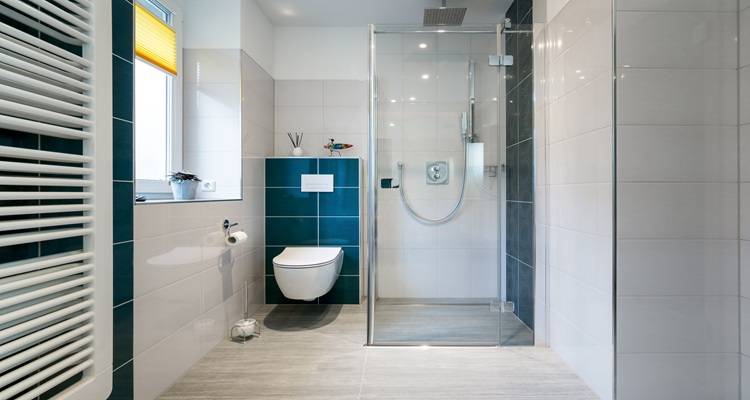
£3000
Table of Contents
- How Much Does It Cost to Replace a Bath with a Walk-In Shower?
- Supply Costs
- Additional Costs
- Labour Costs and Timescales
- Cost Factors for Bath-to-Walk-In Shower Replacement
- Building Regulations Related to Walk-In Showers
- Types of Walk-In Showers
- Alternative Types of Shower Installations
- Hiring Contractors Checklist for Replacing a Bath with a Walk-In Shower
- Removing the Existing Bath: Considerations and Costs
- FAQs
- Sources
How Much Does It Cost to Replace a Bath with a Walk-In Shower?
Of course, the first question on everyone’s lips is - how much will this cost me? Well, as always, there isn’t one single answer; instead, let's take a look at all of the factors that impact the cost of replacing a bath with a walk in shower.
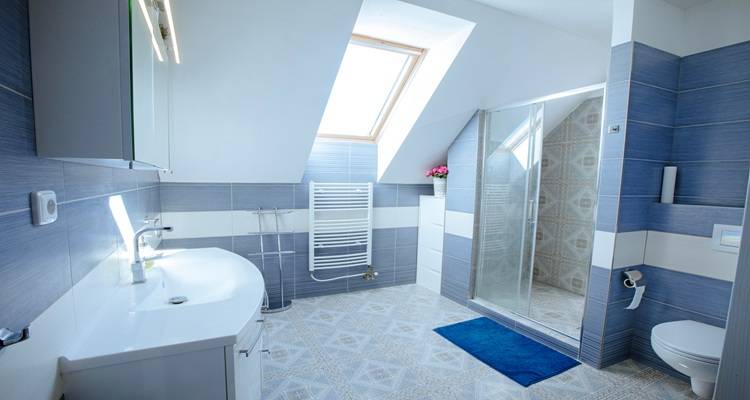
Design
The design of the shower will have a massive impact on the overall job. If you simply want a compact, basic unit, you may pay as little as £1,000, but if you want a luxurious and expansive shower with glass and multiple shower heads, you could pay closer to £5,000.
Materials
Similar to design, the materials you opt for in your renovation will significantly impact the price. Plastic and PVC will always cost less than glass and marble, but that isn’t to say there isn’t a cost-effective solution somewhere in the middle if you find yourself on a budget.
Labour
The labour costs will be a large part of the overall cost, and this will be agreed upon with your chosen tradesperson at the time you receive a quote. As we will cover later on, there are some key tips to choosing this tradesperson and ensuring you receive a fair price.
Additional Features
There are a great number of additional features that you can incorporate into your walk-in shower, and each of these comes with its own additional costs. These can range from safety rails to speakers and lights, of which we will provide average costs throughout this article.
Walk-In Shower Prices
| Item | Low Range | High Range | Average |
|---|---|---|---|
| Mixer Shower | £75 | £150 | £120 |
| Power Shower | £150 | £500 | £300 |
| Thermostatic Shower | £120 | £250 | £190 |
| Digital Shower | £350 | £600 | £450 |
| Removal of bath | £150 | £300 | £225 |
| Installing a shower enclosure | £350 | £500 | £425 |
| Tiling per m2 | £20 | £50 | £35 |
| Plumber per hour | £40 | £60 | £50 |
| Plumber per day | £300 | £400 | £350 |
| Shower Steamer | £1,000 | £2,000 | £1,500 |
| Body Jets | £1,500 | £2,500 | £2,000 |
| Portable Shower Stereo | £25 | £150 | £80 |
| Integrated Shower Stereo | £1,000 | £1,500 | £1,250 |
Supply Costs
The first thing to consider is the supply costs for renovating a bath into a walk-in shower. A walk in shower consists of a shower tray, enclosure, panels and then wall and floor waterproofing materials. In some cases, there may just be an adapting flooring, as opposed to a full shower tray.
If you opt for a basic shower with a plastic tray, you will more than likely also have glass panel enclosures surrounding it, along with a basic shower unit and head. This, for the supply only, would cost in the region of £500.
Now, another option is to have a similar set-up but with a wider shower tray for more space and a more high-specification shower like a thermostatic shower for better temperature control. You may also want multiple shower heads, one for handheld use and another for fixed use, maybe even in a waterfall effect. This would cost in the region of £2,500 despite being made up of similar materials and products.
Finally, luxurious options like power showers with multiple heads, adapted bathroom floors for a seamless entry and multiple additional features such as lights and steamers would cost much more. Additionally, if you opted for different materials, such as a granite base instead of plastic, you could pay as much as £5,000.
Additional Costs
Demolition and Removal of Existing Bath
The first job of replacing a bath with a walk-in shower would be the demolition and removal of the existing bath. Now, this could cost anywhere between £150 and £300 depending on the disposal method for the old bath. You can expect to pay anywhere between these figures.
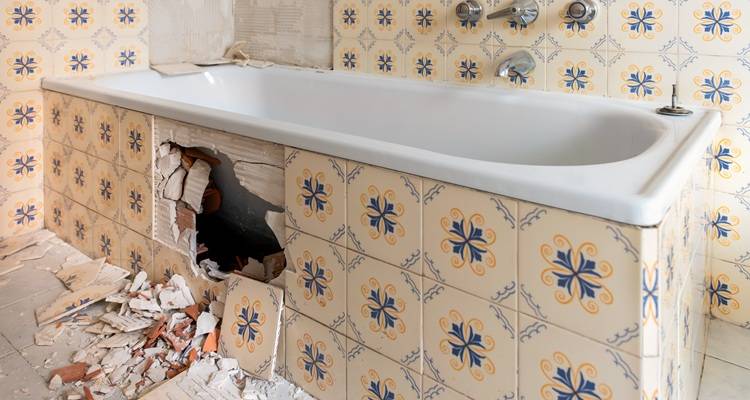
Waste Disposal
Waste disposal throughout the renovation is another thing to consider. You may be better served renting a skip for the duration of the work, which could also be used for the removal and disposal of the old bath. This will cost around £300 for the likely size needed. Check out skip hire costs here.
Upgrades to Plumbing and Wall Reconfiguration
You need to ensure that your plumbing can withstand the additional demands of a shower. Now, this may be related to water pressure or simply the location of supply. Either way, your plumber will review your plumbing system and make recommendations on any potential additional work. The average day cost for a plumber is £350, and you can find more prices for plumbers here.
Sealing and Waterproofing Extras
Of course, you will want to ensure that your bathroom is fully sealed and equipped for your new shower. This may consist of sealing off the areas of your old bath, as while it may not come into direct contact with water, bathrooms are incredibly humid, so moisture ingress can come from anywhere. Again, a plumber will be able to complete this in just a few hours at a rate, on average, of around £30 per hour.
Labour Costs and Timescales
As we’ve mentioned above, the average day cost for a plumber is around £350, and the job will take anywhere between 1-3 days. Usually, the bath will be removed, and the installation work on the shower will begin and potentially finish on day one. However, day 2 may be required for the final sealing and waterproofing work.
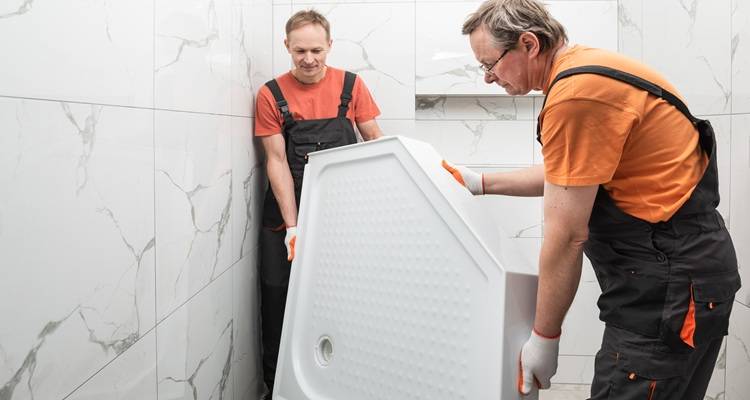
Of course, these timescales are dependent on a number of factors. First, the experience of the tradesperson will impact the time it takes to complete, and you should consider this when employing someone. Next, the size of your bathroom will have a big impact on the timescales, not to mention the size or complexity of the shower that you are installing.
Last, some unforeseen issues may arise. This may be from plumbing uncovered that requires repair work or simply delays in product availability, while unlikely, it is important to keep these things in mind.
Cost Factors for Bath-to-Walk-In Shower Replacement
There are several cost-impacting factors to consider when designing and planning your bath to walk in shower renovation.
Bathroom Size: Simply put, large bathrooms usually require large facilities within them for balance and aesthetics, and therefore, you may pay extra in both labour and supply.
Material Quality: As we have mentioned throughout, the renovation of a bath to a shower can be cost-effective and completed on a budget, however, if you wish to install more luxurious products and materials, you will pay a premium for this.
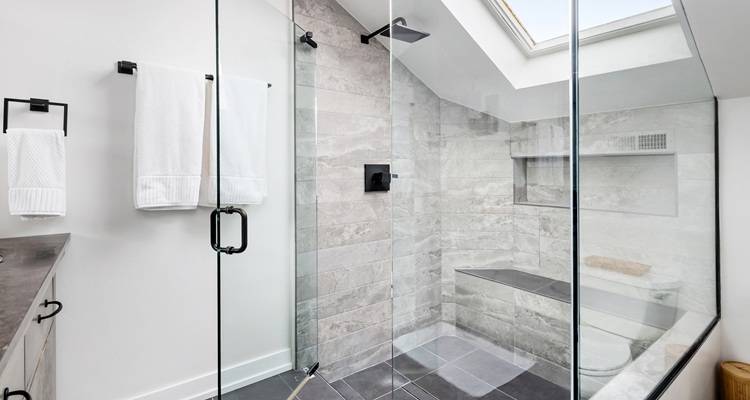
Plumbing Alterations: Some aspects of the job are simply unavoidable, and any plumbing alterations are certainly one of them. From moving outlets to repairing pipework, factor any of this potential work into your budget.
Accessibility Features: The addition of any optional features like grab bars, benches, or custom seating will increase the total cost of the job. As we have detailed throughout, some will impact the cost more than others, and some can still be attained on a budget.
Building Regulations Related to Walk-In Showers
In the UK, walk-in shower installations must comply with certain Building Regulations in order to ensure safety. Here’s an overview of the key regulations that apply:
Part G - Hot Water Safety and Water Efficiency
Part G requires that water installations, including showers, must be safe and suitable for users. The hot water in a shower should not exceed 48°C to prevent scalding. Additionally, shower installations must be designed to use water efficiently, especially if a new shower is being added as part of a larger bathroom renovation or build.
Part P - Electrical Safety
Regulations outline that any electrical components within the bathroom (such as lighting, extractor fans, or heated mirrors) must be installed following Part P. Only a qualified electrician should work on electrical fittings near a walk-in shower due to the risk of electrical shock from water exposure.
Part F - Ventilation
Bathrooms must have adequate ventilation to prevent mould and moisture buildup. This can be achieved through extractor fans or windows with adequate airflow.
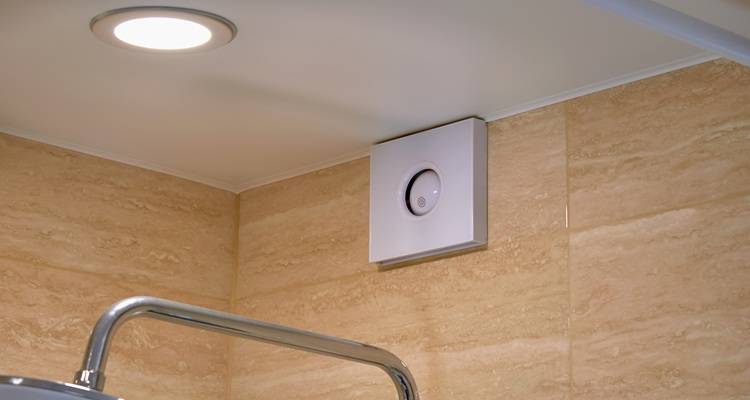
Types of Walk-In Showers
Standard walk-in Shower
A standard walk-in shower consists of a shower tray to contain the water and usually has glass panels to form the enclosure around the shower. This is the most typical type of shower that you’ll find across the UK. This is the most cost-effective and budget-friendly solution.
Curbless Shower
A curbless walk-in shower is a type of shower that has no raised barrier, threshold, or "curb" at the entry. Instead, it has a completely level entry that blends seamlessly with the bathroom floor. This is preferred for aesthetic purposes but requires a more complex installation and, therefore, is more costly overall.
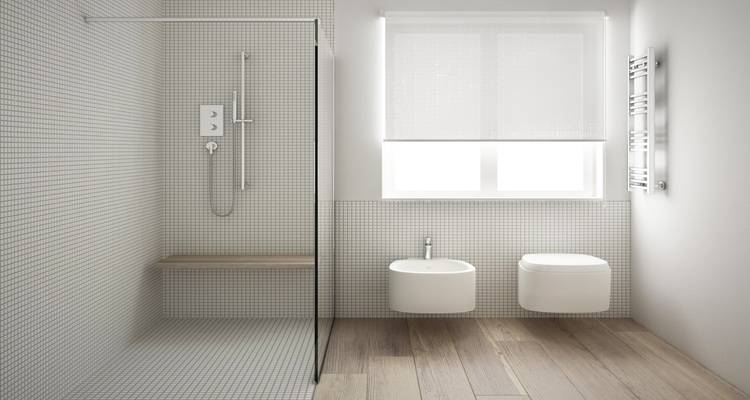
Wet Room
A wet room is a much more extensive solution to a walk-in shower and will transform your bathroom into, effectively, one large shower. Not only will this offer much better accessibility for anyone with mobility issues, but you will also not require any panelling. Overall, this will be a very costly and permanent solution but is incredibly beneficial for some.
Alternative Types of Shower Installations
There are some alternatives to walk in showers:
Shower Enclosure with Bath Base
Some people want a walk-in shower for day-to-day use but also like to have the option of bathing. In this scenario, shower and bath hybrids are very common. Essentially, this consists of a bath but with a panelled area at one end where there is a shower. Find out more here.

Freestanding Shower Pods
A somewhat more modern innovation is a freestanding shower pod, which is a self-contained, fully enclosed shower unit that doesn’t require installation against a wall or integration with the rest of the bathroom’s tiling or plumbing. These shower pods can be purchased pre-manufactured with all necessary components, including walls, a floor, a ceiling, and a door, making them easy to install as a standalone unit in a very short amount of time.
Eco-Friendly Showers
Sustainability is at the forefront of everyone's minds these days, and rightly so if the UK is to meet its obligation to net zero by 2050. Eco-friendly showers are designed to reduce water and energy consumption, minimising their environmental impact. These showers often incorporate technologies and design features that help conserve resources, such as reduced water flow through higher pressure. You shouldn't see any difference in comfort with these showers, but you should enjoy lower bills and the knowledge that you are reducing your strain on resources.
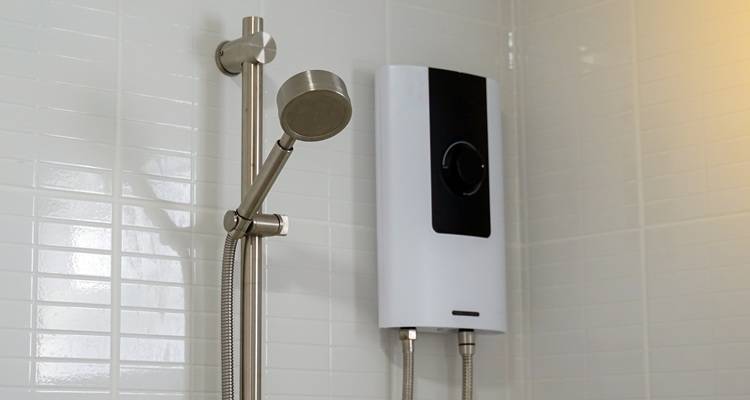
Hiring Contractors Checklist for Replacing a Bath with a Walk-In Shower
Finding the right person to complete your bath to walk-in shower renovation is crucial, and as such, we’ve pulled together some key tips to help you find that perfect tradesperson.
Ask for Recommendations
Personal recommendations are invaluable. If someone you know has recently completed a similar project, ask about their experience. Seeing the finished work firsthand can provide a solid assessment of the professional’s skills and reliability.
Check Reviews and Testimonials
Take advantage of online resources like Google and Checkatrade to read reviews and see how past clients rate the tradesperson you’re considering. Reviews often include project details, giving you a better sense of what the professional can deliver.
Compare Quotes from Multiple Professionals
Do not just settle on the first estimate you receive. Instead, request quotes from several local professionals. Not only will this help you find a fair rate, but it may also offer you some more ideas about the different approaches and ideas for the project.
Use Social Media for Insights
Platforms like Facebook can be helpful for finding reputable professionals, as they often have reviews from verified profiles. These honest reviews can give you peace of mind that you’re making the right choice.
Removing the Existing Bath: Considerations and Costs
Removing your original bath will be the first step in your bath to walk-in shower renovation, so it's best to start on the right foot. First of all, your bath will likely have a much larger surface area than your new shower, so consider how you will use this space and, more importantly, how you will deal with the flooring. This may be the installation of new tiling or carpet or maybe the installation of another amenity in the bathroom.
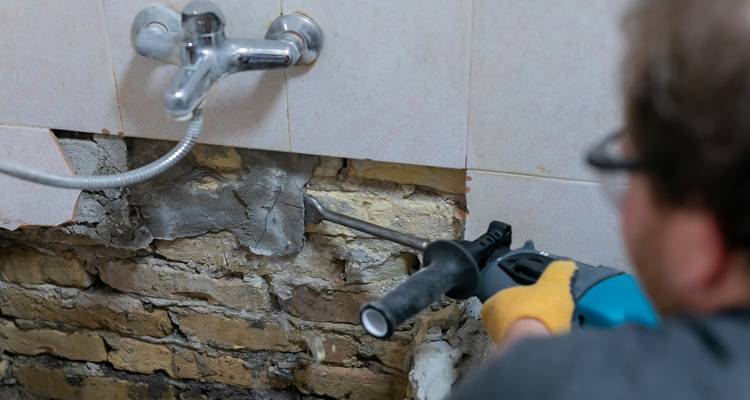
Next, consider the functional aspects of the removal, such as detaching it from the floor, sealing the outlets and spaces around it, and then disposing of the bath. As we mentioned earlier, the incorporation of a skip will be vital here for a quick job, and failing that, there are removal services that can take this away for you.
Overall, the removal of the existing bath shouldn't be too costly or time-consuming, but it is important to ensure that this process is completed as thoroughly as possible.
FAQs
Are walk-in showers suitable for small bathrooms?
With a minimalist look, often featuring clear glass panels and frameless designs, walk-in showers help to create an illusion of space. Additionally, walk-in showers offer flexibility, as they can be designed with or without doors, depending on the requirements of the customer.
Is planning permission required for a bathroom conversion?
However, if you live in a protected or listed building, you may need to seek out approval first. If you do live in a protected property, speak to the relevant body that manages this protection to find out what you can and cannot complete when it comes to home renovations.
What type of tradesperson will complete the renovation?
Similarly, if you require any gas pipework, you may need a gas engineer or similar. Finally, the demolition and/or removal of the old bath may be completed by a labourer or unskilled worker who may work alongside a tradesman, but a plumber would ensure all the waterproofing and selling work afterwards.
What skips of different sizes are available for a residential setting?
Several factors can influence the cost of a skip hire, including the size of the skip, your location, the duration of the hire, and whether you need a permit.
The primary cost factor is the size of the skip. Smaller skips tend to be much more affordable compared to larger ones, as they hold less waste.
The skip hire company is responsible for transporting and disposing of the waste, typically through a mix of recycling, landfill, and incineration. The larger the skip, the more waste it holds, which increases the job’s complexity and cost.
For example, hiring a mini skip for a week typically costs between £90 and £130, while a larger 12-yard skip for the same period can cost anywhere from £250 to £440.
Find out more information about skips and skip hire here.
Is there much ongoing maintenance required for a walk-in shower?
Sources
https://bathroomhelper.co.uk/cost-to-convert-bath-to-walk-in-shower/
https://www.ageukmobility.co.uk/bathing-advice/walk-in-bath-and-shower-installation








